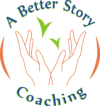Awareness noun
aware·ness | \ ə-ˈwer-nəs \
: the quality or state of being aware: knowledge and understanding that something is happening or exists.
Most of the time, I tend to think of awareness in the context of spirituality. “Be aware of your body” in yoga practice, or “be aware of your breathing” in meditation. Nevertheless, the concept of awareness is a lot broader than that and holds one of the keys to self-mastery and understanding the path to possible change.
It is not easy to be self-aware. In fact, it is very normal for humans to ignore certain realities because our brains are continuously telling us stories that fit our biases or existing beliefs. In the book The Righteous Mind: Why Good People are Divided by Politics and Religion, Dr. Jonathan Haidt, professor and social psychologist at New York University’s Stern School of Business, indicates—in two of the nine book’s main ideas—that intuition comes first and reasoning second, and when individuals make a moral judgment their reasoning will work to support that judgment instead of challenging it. He also indicates that people are overly concerned with self-interest and reputation. In other words, we tend to believe what we already believe and how we want to be perceived influences the way we choose to think about ourselves and the world around us. These two predispositions cause us to walk around blindfolded, making it hard to look objectively on the inside and the outside.
In coaching, for example, we are trained to listen beyond the client’s story. Listening to what is not being said is as important as what is being said. Through conversations, patterns of thinking and behavior emerge, giving us insights worth presenting to the client. Sometimes, posing these challenges is not easy because the individual’s level of awareness is exceptionally low. They believe their internal story and rarely stop to consider other perspectives, which in turn limits their capacity for growth. It is only when the client recognizes a trend within themselves and is willing to act on it, that we can truly start working toward the change they desire. Without awareness transformation seldom happens.
The same holds for culture and societies. These last 12 months have presented us with a series of challenging social events, which painfully divided much of the nation. Most of us, on both sides of the aisle, stayed in disbelief unwilling to seek greater understanding of the other side. Moreover, many sought evidence (fictional stories – AKA fake news) to confirm what they already believed. Polarization of our society has been the trend, and opinions continue to be strong even with something as serious—backed up by science and real deaths—as COVID and the vaccine for it.
For instance, let us take the recent events that occurred at the Capitol in early January. Those who have faith in the long-standing democracy of this “first world country” were astounded to see these acts right here in the United States. Yet, signs of division have been clearly showing throughout our recent history. Historians, analysts, political scientists who have studied how this phenomenon evolves have been warning us. Why do we choose to ignore them? Because we prefer to believe the stories we have been told about our way of life, our government, our religions, our education system, and our families. Moreover, we want to leave them just the way they are and look for evidence to justify that our reasoning is correct. Evolution can be painful and many times too slow. Nevertheless, I believe that confronting uncomfortable realities provide us with a fantastic opportunity; it is only by knowing that something exists that we can work towards changing it.
Going back to you, because you individually are the most important piece to universal awareness, or at least the only part of it you have direct control of. If there is one thing I would like you to consider when thinking about awareness, it is to embrace feeling uncomfortable. Why is that? Because your comfort zone is your selected awareness and feeling awkward is a clear sign that you are about to become aware of something you could not or did not want to see before. Uncomfortable might show up in many ways. Feelings of inadequacy, personal offense, or outrage are clear signs that something has stricken a chord. It takes courage to be curious, look deeper, and consciously decide if you want to continue believing what you always did or if a different viewpoint could benefit your growth.
If you are motivated by personal evolution and perhaps seeking some change in the world, be brave, embrace the idea that awareness is power. The first step to change is to know.
For more information, you can contact Ivonne at info@abetterstorycoaching.com
